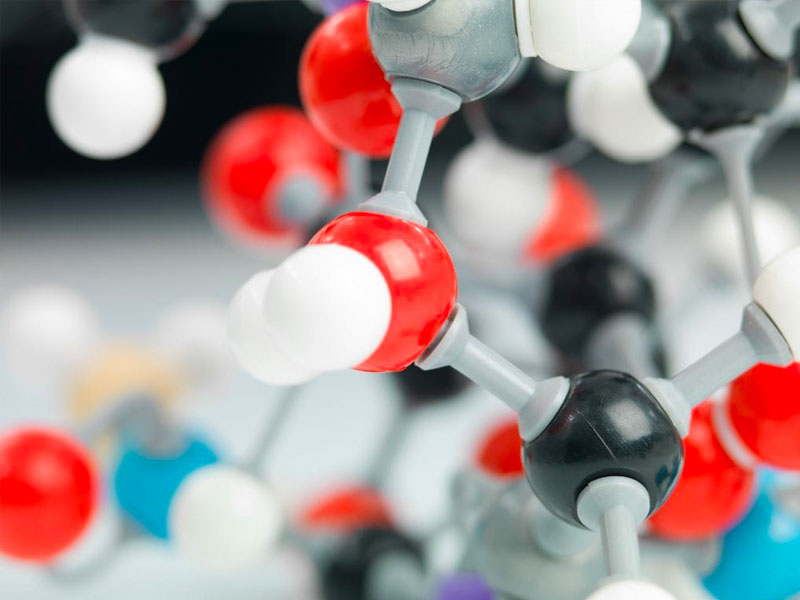
Prof. Wolfgang Schmitt, Trinity College Dublin, Prof. Marc Devocelle, Royal College of Surgeons (RCSI), Dr Darren Griffith, Royal College of Surgeons, Associate Prof. Robert Elmes, Maynooth University, Prof. Susan Quinn, University College Dublin, Dr Marco Monopoli, RCSI, University College Dublin, Associate Prof. Joanna McGouran, University College Dublin, Prof. Eoin Scanlan, Trinity College Dublin.
Royal College of Surgeons
Molecule II
Prof. Thorri Gunnlaugsson
Trinity College Dublin
Overall Objective
Key Scientific Expertise
- Synthetic chemistry
- Flow chemistry
- Chemical biology
- Bio-conjugations
- Hybrid inorganic and organic materials
- Biological-profiling
- Bio-inorganic
- Carbohydrate and automated peptide synthesis Photochemistry
- Molecular sensors and screening
- Structural analysis
- Physico-chemical characterization/analysis
- Protein expression, purification and modification Proteomics
- Metal-based drug conjugates, therapeutics and theranostics
- Imaging agents DNA targeting drugs
- Fluorescence and cellular/body imaging
- Material (nano-) chemistry, enzymatic drug activation and release
Industrial Significance
- Methods for production of antibody, peptide and glycosylated drugs for targeted delivery.
- Functionalization of drug hybrids with luminescent probes, which have been in fully or part clinically investigated, and the application of biomolecules for achieving targeted drug payload release.
- Application of drug hybrids for therapeutic delivery by monitoring luminescence responses, providing a more effective screening processes allowing a more efficient identification of optimal conjugates.
- Use sensing methods to refine conjugation chemistries and determine better selectivity and sensitivity in drug-hybrid structures and bi-conjugated probes.
- Develop novel targeted ‘drug-hybrids’ using radical supramolecular chemistries; involving high-throughput one pot and in-flow technologies.
- Combining the above within crystalline or soft-material to allow for effective drug release that is triggered by enzymatic or light activated release.
- Gain precise in flow control over the drug to antibody and peptide conjugation chemistries to ensure defined and reproducible end products.
- Illustrate the potential of applying sequential flow micro-reactor technology coupled with flow liquid-liquid extraction technology to industry relevant drug antibody conjugations and peptide chemistries.
- Developing targeted drug candidates (either as pro-drugs, drug-conjugates, etc.) that can be selectively delivered thought ‘triggered’ release remains a challenge that this team will address.
- The use of highly selective, reproducible and scalable synthesis using novel industry relevant technologies and their adaption for into bio-conjugates, antibodies, etc. which remains a challenge that the team has in depth expertise in.
- Developing highly luminescent and in vivo applicable long-wavelength sensory/probes/imaging agent systems for use in screening technologies remains a challenge that this team has strong track record in delivering on; the next generation ‘hybrid drugs’ will strongly benefit from such developments.
- The use of soft-material and coordination networks that can be employed in delivering novel and smart drug-hybrids, or be used to incorporate sensors in for monitoring drug release, etc.
- Formulation of novel hybrid drugs opens up novel and unforeseen challenges that the team will investigate and master, particularly through the use of soft- and coordination polymer based materials.
- Controlled release formulations for highly water soluble antibodies and peptides remains a stumbling block for their more widespread clinical use. The most commonly utilized approach being pegylation for antibody delivery; this limiting drawback will be addressed by this expert team.
- Developments of novel targeting systems as ‘drug-hybrids’, ‘pre-probes’ and bio-conjugates (including antibody drugs, short peptides and polysaccharides, etc.) that can be selectively activated and delivered (and monitored) are major current challenges.
- Screening of drug candidates using fast luminescent methods coupled with enzymatic activations (and observed delivery) has been a hot topic in drug/medicinal chemistry. The programme put together by this team will greatly accelerate the progress of delivering such ‘smart/intelligent’ drug/pharmaceuticals.
- The use of soft-materials such as supramolecular gels and coordination networks that can dynamically report on drug delivery status offers the transformative breakthrough for drug delivery systems.
- Reactions carried out in flow rather than batch processes give rise to a paradigm shift from current need to “scale-up” a chemical reaction for production to “scaling-out” to reach production capacity, i.e. once a flow reaction is optimised it can be run indefinitely giving a continuous stream of product.
Molecule II Research Bytes
Check out these 3-minute videos from PhD students, Conor Wynne, Maynooth University and Sheila Fitzgerald, RCSI.
Conor Wynne
Maynooth University
Conor is a PhD student working under the supervision of Dr Robert Elmes. Conor works with peptide probes for enhanced drug treatment. His research will give rise to medicines that may be used to treat a variety of diseases with increased effectiveness, while reducing the risk of unwanted side-effects. Listen to this 3-minute presentation of Conor’s work on Enzyme-Activated Peptides (EAPs) for targeted-bioconjugates to find out more on the project.
Sheila Fitzgerald
Royal College of Surgeons in Ireland
Sheila Fitzgeraldi, is a PhD student working under the supervision of Prof. Donal O’Shea. Sheila’s research focuses on generating ‘drug hybrids’, which takes existing medicines and gives them an additional functionality. By tagging these medicines with a fluorophore they can function as both a therapeutic drug and a diagnostic imaging agent. The use of this imaging in oncology for fluorescence guided surgery is growing at a rapid pace.



















